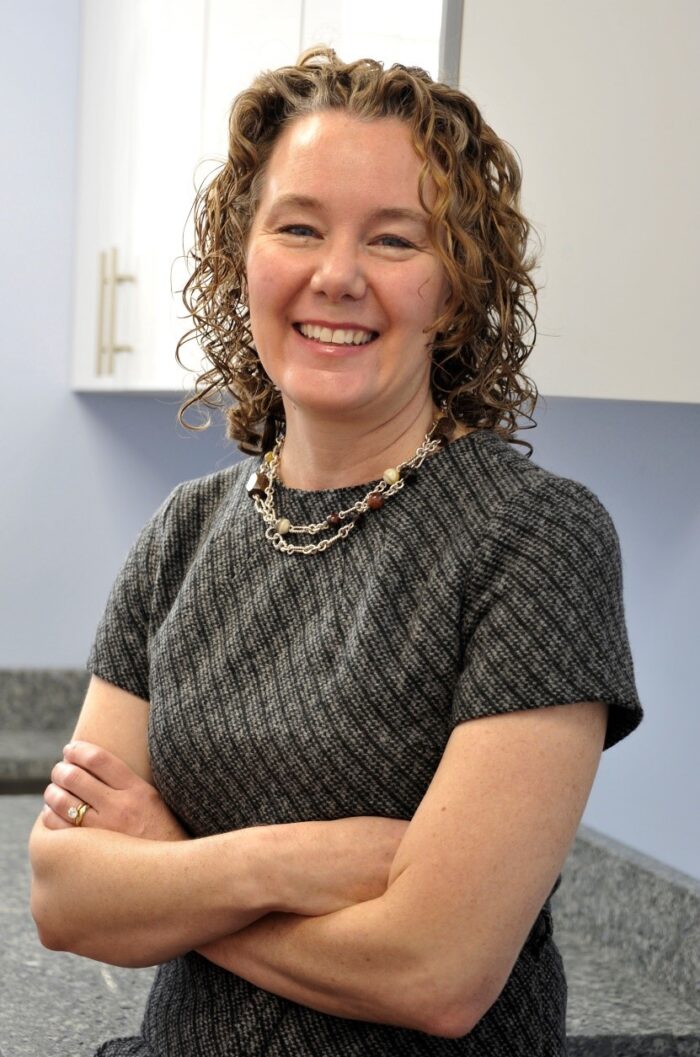Implementation Strategies for Early Childhood Care Coordination and Linkage in Community Health Centers

On May 30, 2024, the ECDHS: Evidence to Impact Center hosted a webinar focused on implementation strategies for early childhood development (ECD) care coordination and linkage in community health centers. The webinar was held with representatives from 151 health centers funded by the Health Resources and Services Administration (HRSA) to improve developmental outcomes among children ages 0-5 through increased screenings and follow-up services.
Dr. Marian Earls, developmental-behavioral pediatrician, and Dr. Liz Isakson, executive director for Docs for Tots – along with experts from the American Academy of Pediatrics and Help Me Grow National Center – shared stories from the field, community health center approaches, overview of resources, and tests of change opportunities to help health center attendees:
- Identify at least one strategy to support ECD referral and follow-up.
- Recognize strategies to establish relationships with referral agencies.
- Describe communication feedback loops so children and their families can access ECD services.
Watch the recording and see webinar highlights below to learn more.
Key Takeaways
- Team-directed care helps improve care through population management, increase efficiency, strengthen family relationships, and engage family leaders.
- Bailit and value-based payment supports implementing risk-based pediatric screening, interventions, robust linkages, and referrals.
- Risk stratification helps assure team continuity for well-child appointments, gives extra time to schedule appointments, enhances pre-visit planning and care coordination, facilitates tracking outcomes, and helps families feel heard and understood.
- Referral and linkage require partnering with networks outside of the health center to link to health, education, and social support systems. It is important to think about the different types of connections for families, including community-based supports, early intervention, sub-specialty care, and child care. Many communities have existing referral networks, lists, and coalitions that can support connections.
- Referral and linkage take time and a team to move into territory outside of the health center, and the work is not linear. Building a continuum of care means building solid, longstanding relationships across providers that touch the lives of families with young children.
- Community partnership is a two-way street and helps ensure stable, relationship-based referrals for families. Health centers do not “have to go it alone” when building community partnerships – there are existing resources, services, and systems.
Possible Tests of Change for Health Centers
To Facilitate Care Coordination and Linkage
- Use a “flag” – like a sticky note in Epic – for scheduling early morning visits or longer visits.
- Enhance pre-visit planning.
- Implement protocols like morning huddle discussions.
- Integrate with behavioral/mental health specialists, social workers, and family navigators.
- Optimize billing and coding.
To Establish Relationships With Referral Networks and Create Communication Feedback Loops
- Establish a referral pathway with a community partner and test the feedback loop to ensure both sides are sharing and receiving information as planned.
- Elicit feedback from families and referral partners on the quality of the referral.
- Create a regular quality improvement meeting with referral partners to walk through case examples and determine opportunities for improvement.
Speaker Bios
Liz Isakson, MD, FAAP
Dr. Isakson is the executive director of Docs for Tots, a nonprofit promoting practices, policies, and investments that will enable young children to thrive. Docs for Tots creates linkages between doctors, policymakers, early childhood practitioners, and other stakeholders to ensure that children grow up healthy. Dr. Isakson is a pediatrician and public health practitioner with 20+ years of experience and multiple publications published across the systems of early care and education, health, and family economic security.

Marian Earls, MD, MTS, FAAP
Dr. Earls is board certified in both general pediatrics and developmental and behavioral pediatrics. Her career has focused on Medicaid and EPSDT policy and quality implementation in practice. She was the director of Pediatric Programs and deputy chief medical officer for Community Care of North Carolina from July 2012 through December 2019 and led the NC CHIPRA Quality Demonstration Grant (2010–2015). From 1994 to July 2012, she was the medical director of Guilford Child Health, a large, nonprofit, private pediatric practice in Greensboro, NC that served families at or below 200% of the Federal Poverty Level. Dr. Earls is the developmental and behavioral pediatrician of the NICU Developmental Follow-up Clinic (multidisciplinary) for Cone Health System in Greensboro. She is a clinical professor of pediatrics for the University of North Carolina Medical School.
As of 2020 she has established Marian F Earls Consulting, LLC, focused on:
- Implementation of pediatric population processes in practice for early childhood development, infant and early childhood mental health, mental health competencies for pediatric practice, mental health integration in pediatric primary care, trauma-informed care, and addressing social drivers of health.
- Cross-sector collaboration and systems-based approaches to support this work at the community and state levels.


